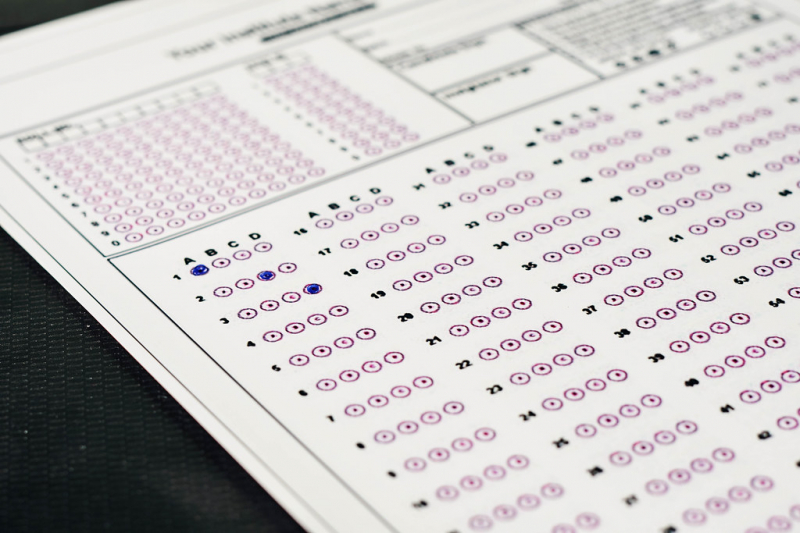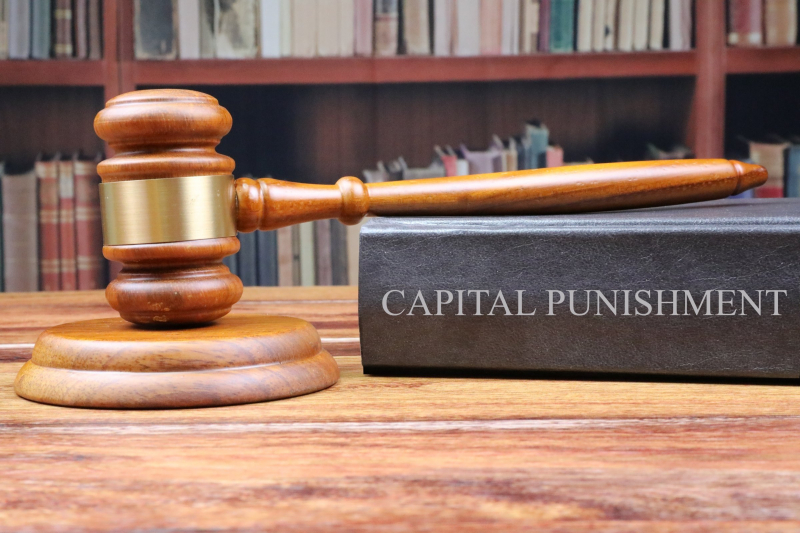Top 10 Best Controversial Essay Topics for High School
High school students are encouraged to debate controversial topics that promote critical thinking and well-rounded opinions. High school students can practice ... read more...their analytical and persuasive skills by writing about controversial issues that create passionate conversations. This collection of essay themes encourages students to explore complicated social, ethical, and personal issues to understand the world better. Here are the best controversial essay topics for high school carefully curated by Toplist.
-
Essay topic:
Beyond Uniformity: The Ongoing Debate on School Dress Codes
The question of whether students should be required to wear school uniforms has sparked intense debate in educational circles and beyond. In your essay, critically examine the multifaceted aspects of the school uniform debate.
Answer:
The perennial debate on whether students should be required to wear school uniforms has divided educators, parents, and students. While proponents argue that uniforms instill discipline and promote a sense of equality, opponents contend that they infringe upon individual freedom and hinder the development of personal expression. This essay explores the multifaceted nature of this debate, considering the implications of mandatory school uniforms on various aspects of students' lives.
Opponents of school uniforms argue that such policies infringe upon students' right to individual freedom and expression. They posit that clothing is a form of personal identity, and by enforcing a standardized dress code, schools may inadvertently stifle creativity and hinder students from expressing their unique personalities. The question arises: at what point does the pursuit of uniformity compromise the celebration of diversity?
Proponents often highlight the role of school uniforms in promoting equality, as they eliminate visible markers of socioeconomic status. However, critics argue that this approach oversimplifies the complex issue of social dynamics. Uniforms may remove distinctions in clothing but don't address the broader issues of economic inequality, potentially shifting the focus to other aspects of appearance and behavior.
The impact of school uniforms on the overall culture and learning environment is a contentious aspect of the debate. Supporters contend that uniforms contribute to a focused and disciplined atmosphere, fostering a sense of belonging and unity. However, skeptics question whether this emphasis on conformity may hinder critical thinking, creativity, and the development of essential life skills.
In a diverse educational landscape, critics argue that uniform policies may not adequately accommodate cultural and religious differences, potentially marginalizing certain groups. Schools face the challenge of creating policies that respect and celebrate diversity while maintaining a sense of unity. Striking this delicate balance requires thoughtful consideration and open dialogue.
The potential impact of school uniforms on students' mental health and well-being is a growing concern. Research suggests a connection between dress codes and issues such as body image and self-esteem. As schools aim to provide a positive and nurturing environment, assessing the psychological implications of uniform policies on students becomes crucial.
In conclusion, the debate over mandatory school uniforms has yet to be settled. The issues at stake—individual freedom, equality, school culture, cultural sensitivity, and student well-being—are complex and interconnected. Schools must engage in ongoing conversations that consider the diverse perspectives of students, parents, and educators. Ultimately, the challenge is to find a middle ground that balances the benefits of a collective identity with the recognition and celebration of individuality.

Photo by Ron Lach : https://www.pexels.com/photo/smiling-boys-and-girls-in-school-uniforms-10646605/ 
Photo by Polina Tankilevitch: https://www.pexels.com/photo/a-group-of-girls-in-white-skirt-standing-near-the-tree-8217159/ -
Essay topic: Unveiling the Duality of Social Media: Nurturing Connectivity or Fostering Detrimental Effects on Youth
Answer:
The ubiquity of social media in the lives of today's youth is undeniable, with platforms like Instagram, Facebook, and Twitter shaping how they communicate, express themselves, and perceive the world. While advocates applaud the connectivity and information-sharing facilitated by social media, skeptics argue that its pervasive influence has detrimental effects on the youth's mental health, social interactions, and overall well-being. This essay seeks to unravel social media's dual nature, exploring its positive and negative impacts on the younger generation.
Social media proponents contend that it is a powerful tool for connectivity, allowing youth to interact with peers globally, share ideas, and stay informed about world events. Social media platforms have become vehicles for social activism, giving a voice to the youth and fostering a sense of global citizenship.
Conversely, the omnipresence of social media raises concerns about its impact on the mental health of young individuals. Studies indicate a correlation between excessive social media use and increased rates of anxiety, depression, and feelings of inadequacy. The constant exposure to curated, idealized lives can contribute to distorted self-perceptions and unrealistic expectations.
Advocates argue that social media enhances social interactions by providing new communication and relationship-building avenues. However, critics point to the potential for cyberbullying, the erosion of face-to-face communication skills, and the superficial nature of online relationships, which may need more depth and authenticity than traditional connections.
The visual-centric nature of many social media platforms has been linked to self-esteem and body confidence issues. Youth, bombarded by images of idealized beauty standards, may experience pressure to conform, leading to body dissatisfaction and the perpetuation of unrealistic beauty ideals.
Supporters highlight the educational opportunities afforded by social media, as it provides a platform for learning, information sharing, and collaboration. However, detractors express concerns about the potential for misinformation, the distortion of facts, and the impact of echo chambers, where individuals are exposed only to information that aligns with their existing beliefs.
In summary, the impact of social media on youth is a complex and multifaceted phenomenon with both positive and negative implications. While social media facilitates connectivity, global awareness, and educational opportunities, it also poses risks to mental health, social interactions, and self-image. Striking a balance between harnessing the benefits of social media and mitigating its potential harms requires a nuanced understanding of its varied effects. Youth, educators, and society must engage in ongoing discussions and implement strategies to foster responsible and mindful social media use, ensuring the well-being of the younger generation in an increasingly interconnected world.

Photo by Samson Katt: https://www.pexels.com/photo/concentrated-asian-couple-using-smartphones-on-bench-5225486/ 
Photo by Ketut Subiyanto: https://www.pexels.com/photo/delighted-female-friends-with-laptop-and-smartphone-4353618/ -
Essay topic: Shared Responsibilities in the Face of Climate Change: Debunking Myths and Embracing Accountability
Answer:
The existential threat posed by climate change demands a collective and urgent response. As nations grapple with the consequences of environmental degradation, the debate over who bears the primary responsibility for addressing climate change becomes increasingly contentious. This essay dissects the complexities surrounding climate change responsibilities, challenging common myths and emphasizing the need for a shared global commitment to sustainable practices.
One common misconception in the climate change debate is the oversimplified narrative that places the burden solely on industrialized nations. While historically high emitters undeniably bear a significant responsibility, it is crucial to recognize the evolving contributions of emerging economies and their role in the current climate crisis. Developing nations argue for their right to pursue economic growth, emphasizing the need for shared responsibility and differentiated commitments.
Critics often point to the role of global economic structures and multinational corporations in perpetuating unsustainable practices. The responsibility extends beyond national borders, as corporations operating in various regions contribute to emissions, deforestation, and resource depletion. The debate intensifies over whether the burden should fall on governments, corporations, or a collaborative effort between the two.
Individuals, too, are implicated in the climate change crisis through their daily lifestyle choices. From transportation habits to dietary preferences, personal decisions contribute to carbon footprints. However, some argue that placing the onus on individuals distracts from more significant systemic issues, such as inadequate policy measures and corporate influence.
Advocates for technological solutions and global cooperation contend that advancements in green technologies, renewable energy, and international collaboration offer viable pathways to mitigate climate change. Skeptics, on the other hand, question the feasibility of these solutions, raising concerns about their effectiveness and potential unintended consequences.
The role of government policies and international agreements in addressing climate change is central to the debate. Questions arise regarding the effectiveness of existing contracts, the enforceability of climate policies, and the need for more stringent regulations to compel nations to meet their environmental commitments.
In closing, addressing climate change is an intricate and contentious challenge that requires a multifaceted approach. Debunking myths surrounding climate change responsibilities is essential for fostering a more nuanced and productive global dialogue. While historical emissions, economic structures, individual choices, and technological innovations all play a role, the key lies in recognizing the interconnectedness of these factors and the need for shared responsibility. Only through a collective commitment to sustainable practices, international cooperation, and accountable governance can the world hope to tackle the pressing issue of climate change and safeguard the planet for future generations.

Photo by Markus Spiske: https://www.pexels.com/photo/climate-road-landscape-people-2990650/ 
Photo by Marcin Jozwiak: https://www.pexels.com/photo/white-smoke-coming-out-from-a-building-3641377/ -
Essay topic: Standardized Testing in Education: Navigating the Divide Between Assessment and Learning
Answer:
Standardized testing has been a cornerstone of educational evaluation for decades, purportedly providing an objective measure of student achievement. However, as the educational landscape evolves, so does the controversy surrounding the relevance and effectiveness of standardized testing. This essay seeks to unravel the complexities of this debate, examining both the arguments in favor of standardized testing and the criticisms that question its actual value in assessing student learning.
Proponents argue that standardized testing provides a uniform and measurable way to assess student performance, enabling educators and policymakers to hold schools accountable for educational outcomes. Standardized tests, they contend, serve as a crucial tool for identifying areas of improvement and allocating resources effectively.
Advocates for standardized testing emphasize its role in promoting equity in education. They argue that by employing a standardized measure, schools can identify achievement gaps and implement targeted interventions to ensure that all students, regardless of socioeconomic background, have access to quality education.
One of the primary arguments in favor of standardized testing is its purported ability to gauge a student's readiness for higher education and the workforce. Colleges and employers often rely on standardized test scores as a benchmark for academic and cognitive abilities, facilitating a streamlined evaluation process in admissions and hiring.
Critics contend that the emphasis on standardized testing leads to a phenomenon known as "teaching to the test." To boost test scores, educators may narrow their curriculum, focusing on rote memorization and test-specific skills rather than fostering critical thinking, creativity, and a holistic understanding of subjects.
A recurring critique of standardized testing revolves around its inherent cultural and socioeconomic biases. Critics argue that these tests may disadvantage certain demographic groups, unfairly assessing their abilities. The emphasis on a standardized approach may not adequately account for diverse learning styles and cultural backgrounds.
Detractors also express concerns about the impact of standardized testing on fostering creativity and critical thinking skills. The structure of these tests, often focused on multiple-choice questions and timed responses, may only partially capture the complexity of a student's intellectual capabilities.
In summary, the debate over the relevance of standardized testing is a nuanced and multifaceted discussion. While standardized tests offer a seemingly objective method of assessing student performance and ensuring educational equity, the criticisms surrounding cultural bias, teaching practices, and the limitations in evaluating holistic skills cannot be ignored. Striking a balance between accountability and fostering a comprehensive educational experience is essential for addressing the challenges posed by standardized testing. As the educational landscape continues to evolve, educators, policymakers, and stakeholders must engage in an ongoing dialogue to refine assessment methods that genuinely serve the best interests of students and the pursuit of educational excellence.

Photo by Flickr 
Photo by Jacobin -
Essay topic: Navigating the Ethical Crossroads: Doctor-Assisted Suicide in Contemporary Society
Answer:
The debate over doctor-assisted suicide, also known as physician-assisted death or aid in dying, has become one of the most contentious issues in contemporary medical ethics. While proponents argue for an individual's right to autonomy and a dignified end to suffering, opponents raise profound concerns about the sanctity of life, potential abuse, and the slippery slope towards ethical erosion. This essay aims to dissect the complexities surrounding doctor-assisted suicide, delving into the ethical, legal, and humanitarian dimensions of this controversial topic.
Proponents of doctor-assisted suicide argue that individuals facing terminal illnesses should have the right to control the timing and manner of their death. The principle of autonomy, they assert, extends to decisions about one's own life and death, allowing for a compassionate and dignified end when faced with unbearable suffering.
Opponents, often rooted in religious and moral convictions, stress the sanctity of life as a fundamental ethical principle. They express fears that legalizing doctor-assisted suicide could lead to a slippery slope, where the criteria for eligibility expand beyond the terminally ill to encompass other categories of suffering individuals, potentially compromising the integrity of medical ethics.
Critics of doctor-assisted suicide highlight the importance of improving palliative care and hospice services as an alternative approach to addressing end-of-life suffering. They argue that enhancing the quality of end-of-life care can alleviate pain and provide emotional support, rendering assisted suicide unnecessary.
The traditional tenets of medical professionalism, often encapsulated in the Hippocratic Oath, emphasize the physician's commitment to preserving life and avoiding harm. Those opposed to doctor-assisted suicide contend that these foundational principles are compromised when physicians are involved in hastening death.
The legal status of doctor-assisted suicide varies globally and within different jurisdictions. Some argue for clear legal frameworks that provide safeguards against abuse, while others express concerns about the challenges of crafting legislation that adequately balances individual autonomy with the protection of vulnerable populations.
The acceptance or rejection of doctor-assisted suicide often reflects societal attitudes and cultural perspectives on death, suffering, and the role of medical professionals. Understanding these cultural nuances is essential for crafting policies that respect diverse values and beliefs.
In conclusion, the debate over doctor-assisted suicide is a complex interplay of ethical, legal, and cultural considerations. While proponents advocate for individual autonomy and the right to a dignified death, opponents raise profound concerns about the potential erosion of ethical principles and the sanctity of life. Striking a balance between respecting the wishes of individuals facing unbearable suffering and safeguarding against potential abuses requires nuanced discussions, transparent legal frameworks, and ongoing ethical reflections within the medical and broader societal context. As the discourse continues, it is imperative to engage in a thoughtful and compassionate exploration of doctor-assisted suicide to ensure that ethical considerations remain at the forefront of end-of-life care decisions.
Photo by Dids .: https://www.pexels.com/photo/tender-woman-in-water-of-bathtub-5616288/ 
Photo by Mehmet Turgut Kirkgoz : https://www.pexels.com/photo/surgeon-during-endoscopic-surgery-19447365/ -
Essay topic: Beyond the Cage: Navigating the Complex Landscape of Animal Ethics
Answer:
The ethical treatment of animals has emerged as a focal point of contention, sparking debates that transcend cultural, scientific, and moral boundaries. While some argue for the inherent rights and welfare of animals, others assert that human interests and necessities often take precedence. This essay delves into the multifaceted realm of animal ethics, exploring the ethical considerations surrounding animal use, experimentation, and rights.
Utilitarian arguments often underpin the ethical considerations surrounding animal use, with proponents asserting that the benefits to human society, whether in terms of food production, medical research, or economic interests, justify the utilization of animals. Critics, however, question the ethical implications of prioritizing human interests over the well-being and intrinsic value of sentient beings.
The use of animals in scientific research is a contentious issue, with proponents contending that such experimentation is vital for advancing medical knowledge and developing treatments. Opponents raise ethical concerns about the suffering experienced by animals during experiments, the reliability of results, and the exploration of alternative research methods that do not involve animal testing.
The industrialization of animal agriculture has become a focal point of ethical debates, particularly concerning factory farming practices. Advocates for animal welfare emphasize the need for humane treatment, while critics highlight the environmental impact, health concerns, and ethical considerations surrounding mass production and intensive farming methods.
The concept of animal rights asserts that animals have inherent value and are entitled to certain fundamental rights, similar to human rights. This perspective challenges the notion of animals as mere resources for human use and advocates for legal protections against cruelty, exploitation, and unnecessary harm.
Cultural attitudes towards animals vary globally, with different societies ascribing distinct ethical values to animal treatment. Understanding these cultural variations is essential for fostering respectful dialogue and devising ethical frameworks that consider diverse perspectives on the relationship between humans and animals.
Some argue that individuals bear a personal responsibility in promoting ethical treatment of animals through their consumer choices. This perspective encourages the adoption of cruelty-free products, supporting sustainable practices, and raising awareness about the ethical implications of various industries that exploit animals.In summary, the discourse surrounding animal ethics encapsulates a spectrum of perspectives, ranging from utilitarian considerations to the assertion of inherent animal rights. As society grapples with ethical dilemmas related to animal use, experimentation, and rights, it becomes imperative to seek a balance that respects both human interests and the welfare of sentient beings. The ethical treatment of animals necessitates ongoing dialogue, scientific advancements, and a collective commitment to reevaluate practices that impact the lives of animals in our shared world.

Photo by Andreas Schnabl : https://www.pexels.com/photo/a-person-sitting-on-a-rocky-mountains-with-a-dog-and-looking-at-the-view-19487304/ 
Photo by World Animal Foundation -
Essay topic: Capital Punishment: Navigating the Ethical Quandary of State-Endorsed Killing
Answer:
The question of capital punishment, or the death penalty, has been a longstanding ethical dilemma, raising profound questions about justice, human rights, and the role of the state in administering ultimate punishment. While proponents argue for its deterrent effect and retribution, opponents question its morality, effectiveness, and the potential for irreversible miscarriages of justice. This essay explores the contentious landscape of capital punishment, delving into the ethical considerations that surround state-sanctioned killing.
Proponents of capital punishment often cite its deterrent effect on crime rates and emphasize the concept of retribution as a just response to heinous crimes. They argue that the death penalty serves as a powerful deterrent and a means of securing justice for victims and society at large.
Opponents, however, point to the inherent risk of executing innocent individuals. The irreversible nature of capital punishment raises ethical concerns about the potential for wrongful convictions, flawed legal processes, and systemic biases that disproportionately affect marginalized communities.
The moral and ethical dimensions of capital punishment come into sharp focus, with critics arguing that state-sanctioned killing is a violation of the inherent right to life. The ethical implications extend beyond the act of execution to the societal acceptance of violence as a means of addressing crime.
The global perspective on capital punishment varies widely, with some countries staunchly advocating for its use while others reject it as a violation of fundamental human rights. International human rights organizations emphasize the need for universal abolition, framing capital punishment as a cruel and inhumane practice.
Critics also highlight the racial and socioeconomic disparities in the application of the death penalty, suggesting that these disparities reflect systemic injustices within the criminal justice system. The disproportionate impact on minority communities raises questions about fairness, equality, and the potential for discriminatory practices.
Advocates for criminal justice reform argue for alternatives to capital punishment, such as life imprisonment without parole, rehabilitation programs, and restorative justice practices. These alternatives aim to address the root causes of crime, provide opportunities for rehabilitation, and avoid the irreversible consequences associated with the death penalty.
In closing, the debate over capital punishment is a deeply rooted ethical quandary that demands careful consideration of its moral, social, and legal implications. As society grapples with questions of justice, human rights, and the potential for irreversible errors, it becomes imperative to engage in thoughtful dialogue, consider alternative approaches, and continually evaluate the ethical underpinnings of state-sanctioned killing. The pursuit of justice must align with a commitment to fairness human rights, and a recognition of the complex factors that contribute to crime in our diverse and evolving societies.
Photo by Pix4free 
Photo by The Blue Diamond Gallery -
Essay topic: Abortion: The Moral Crossroads of Women's Reproductive Rights
Answer:
The issue of abortion has been a flashpoint in ethical, religious, and political debates, eliciting passionate responses from both proponents and opponents. The core of the controversy revolves around a woman's right to choose and the moral status of the fetus. This essay aims to explore the multifaceted landscape of abortion, examining the ethical considerations surrounding women's reproductive rights, the sanctity of life, and the role of societal attitudes in shaping this contentious debate.
Proponents of abortion rights emphasize a woman's right to make decisions about her own body, framing the issue as one of reproductive autonomy. They argue that restricting access to abortion infringes upon women's fundamental rights and autonomy, reinforcing the importance of safe and legal abortion as a healthcare option.Opponents of abortion often root their arguments in the sanctity of life, asserting that a fetus has inherent rights and moral standing. From this perspective, abortion is viewed as the taking of a human life, raising profound ethical concerns about the responsibility society bears in protecting the vulnerable.
The ethical complexities surrounding abortion extend beyond individual rights to encompass health and socioeconomic considerations. Advocates for abortion rights stress the importance of considering the physical and mental health of women, as well as the socioeconomic factors that may influence a woman's decision to terminate a pregnancy.
The legal frameworks governing abortion vary globally, contributing to the complexity of the debate. Access to safe and legal abortion is a critical consideration in discussions about reproductive rights, with proponents advocating for removing barriers that limit access and opponents pushing for restrictions based on moral and religious grounds.
Cultural and religious beliefs play a significant role in shaping attitudes toward abortion. Different societies and religious traditions hold diverse views on the moral implications of terminating a pregnancy, and these perspectives often influence the legal and societal stance on abortion.
Discussions about abortion often include considerations of alternatives such as comprehensive sex education, access to contraception, and support for pregnant individuals. Proponents of reproductive rights argue that addressing the root causes of unplanned pregnancies can contribute to reducing the need for abortion.In summary, the debate over abortion is an intricate and deeply personal ethical dilemma that intersects with issues of autonomy, the sanctity of life, and societal values. Navigating this complex landscape requires thoughtful dialogue, empathy, and an acknowledgment of the diverse perspectives that shape individuals' views on abortion. As society grapples with questions of ethics, legality, and women's reproductive rights, it becomes imperative to foster open conversations that respect the complexity of individual experiences and the diverse cultural, religious, and moral frameworks that contribute to this controversial issue.

Photo by Brett Sayles: https://www.pexels.com/photo/grayscale-photo-of-woman-in-front-of-pacard-12639446/ 
Photo by Groundviews -
Essay topic: College Drinking: Unveiling the Complex Tapestry of Societal Norms and Individual Responsibility
Answer:
College drinking has long been a topic of concern, with the college experience often intertwined with social events and the consumption of alcohol. While some argue that moderate drinking is a rite of passage and an integral part of socialization, others express profound concerns about the impact of excessive alcohol consumption on academic performance, mental health, and overall well-being. This essay aims to dissect the multifaceted issue of college drinking, exploring the ethical, societal, and individual dimensions of this controversial topic.
One argument in favor of college drinking emphasizes the societal norms that surround alcohol consumption in a college setting. Proponents argue that moderate drinking is a social lubricant, fostering friendships and creating a sense of camaraderie. However, critics highlight the role of peer pressure and societal expectations, raising concerns about the pressure to conform to drinking norms and the potential consequences of non-compliance.Opponents of college drinking point to the well-documented negative effects on academic performance and mental health. Excessive alcohol consumption is associated with increased rates of missed classes, poor grades, and a heightened risk of mental health issues, including anxiety and depression. The impact on students' overall well-being becomes a critical consideration in evaluating the societal acceptance of heavy drinking on college campuses.
Binge drinking, often defined as consuming a large amount of alcohol in a short period, is a prevalent concern in college environments. Health risks associated with binge drinking, including alcohol poisoning, injuries, and long-term health consequences, prompt ethical considerations regarding the responsibility of educational institutions and society in preventing and addressing these risks.
The role of colleges and universities in shaping the drinking culture on campuses is a central aspect of the controversy. Advocates for change argue for the implementation of stricter policies, educational programs, and support services to address alcohol-related issues. However, critics question the effectiveness of institutional measures and the extent to which colleges should bear responsibility for students' choices.
A crucial dimension of the debate revolves around personal responsibility and individual decision-making. Supporters of personal freedom argue that adults have the autonomy to make choices about alcohol consumption, and education should focus on responsible drinking practices. Opponents, however, stress the vulnerability of college-aged individuals and the need for increased awareness about the potential consequences of excessive drinking.
The evolving landscape of cultural norms around alcohol consumption, as well as social movements advocating for responsible drinking and awareness, play a role in shaping the discourse. Changing attitudes toward alcohol, fueled by health and safety concerns, challenge traditional perceptions of college drinking and prompt a reevaluation of societal expectations.
In a nutshell, the issue of college drinking is a complex and multifaceted topic that involves societal norms, individual responsibility, and the role of educational institutions. As society grapples with the impact of excessive alcohol consumption on academic success, mental health, and overall well-being, it becomes imperative to foster a culture of responsible drinking, open dialogue, and support services that address the diverse needs of college students. Balancing personal freedoms with the well-being of individuals and the broader community requires ongoing conversations, educational initiatives, and a collective commitment to shaping a healthier and more responsible drinking culture on college campuses.
Photo by olia danilevich: https://www.pexels.com/photo/people-drinking-and-making-a-toast-5911468/ 
Photo by Monstera Production: https://www.pexels.com/photo/young-diverse-students-chatting-near-window-6238169/ -
Essay topic: The Controversy of Education Inequality in America
Answer:
Education, often hailed as the great equalizer, stands at the forefront of societal progress and individual opportunity. However, the persistent disparities in educational outcomes across socio-economic lines in America have fueled a heated debate. This essay seeks to unravel the complex and controversial issue of education inequality in the United States, examining the factors that contribute to the divide and the ethical considerations surrounding the quest for a more equitable education system.
A central aspect of the controversy surrounding education inequality lies in the disparities in funding and resource allocation among schools. Advocates for educational equity argue that the current system perpetuates a cycle of disadvantage, where schools in low-income areas lack the resources, experienced teachers, and extracurricular opportunities essential for a well-rounded education.
The correlation between socio-economic status and academic achievement is a persistent concern. Critics argue that the educational system often fails to address the broader societal factors, such as poverty and unequal access to quality healthcare, which significantly impact a student's ability to succeed academically.
The controversy extends to standardized testing, which plays a pivotal role in college admissions. Opponents argue that standardized tests may perpetuate educational inequality, as students from disadvantaged backgrounds may face barriers in preparing for and accessing resources to excel in these exams.
Residential segregation contributes to the perpetuation of education inequality. Critics point to the connection between housing patterns and school quality, emphasizing the need for addressing the root causes of segregation to create more diverse and equitable educational environments.
The role of policy in addressing education inequality is a contentious topic. While advocates call for comprehensive policy changes to address systemic issues, opponents often resist what they perceive as government overreach, advocating for localized solutions and school choice initiatives.
The quality and training of teachers play a significant role in education inequality. Advocates argue for investing in teacher training, professional development, and equitable distribution of experienced educators to ensure that all students have access to high-quality instruction.
In conclusion, education inequality in America remains a deeply rooted and controversial issue, entangled with socio-economic disparities, funding gaps, and systemic challenges. The ethical imperative of providing every child with equal educational opportunities demands a critical examination of policy, resource allocation, and societal attitudes. As the nation strives for progress and inclusivity, addressing education inequality requires a collective commitment to dismantling barriers, fostering equitable policies, and ensuring that every child, regardless of their socio-economic background, has access to the transformative power of quality education.
Photo by Keira Burton: https://www.pexels.com/photo/positive-muslim-female-student-standing-on-street-against-buildings-of-university-6084455/ 
Photo by Kairos Panamá: https://www.pexels.com/photo/kids-learning-at-school-19487327/





























